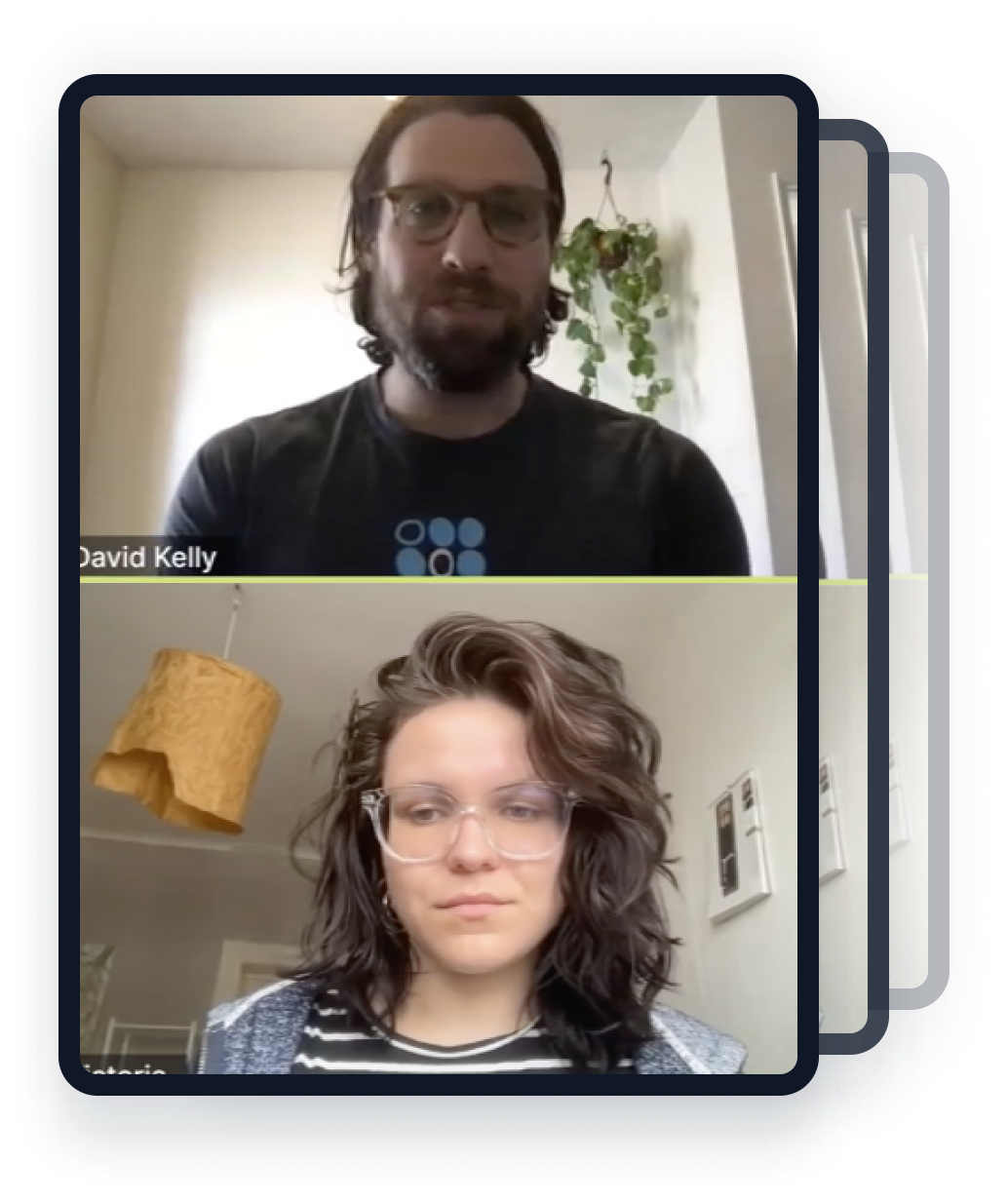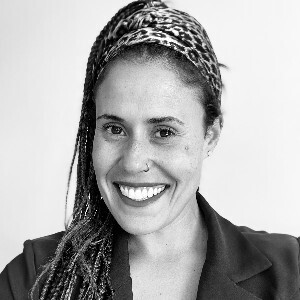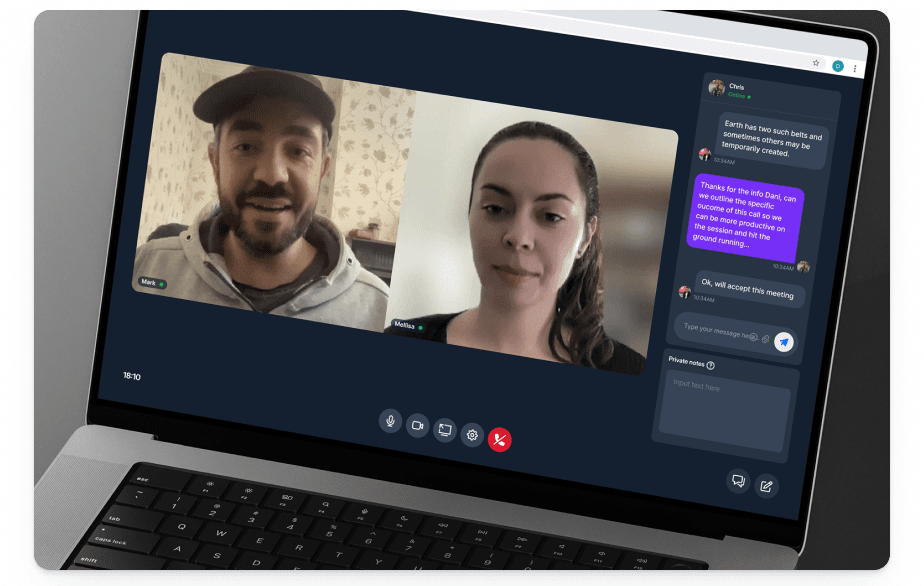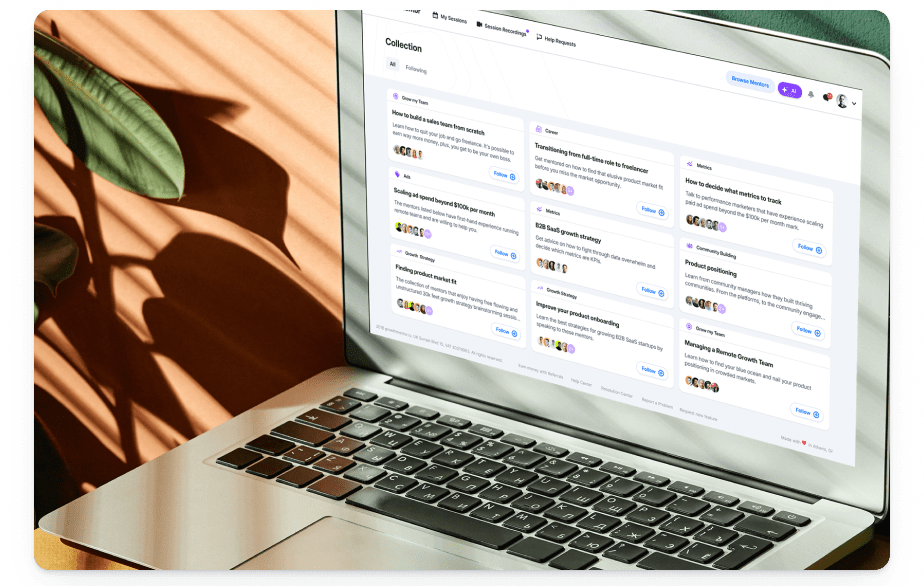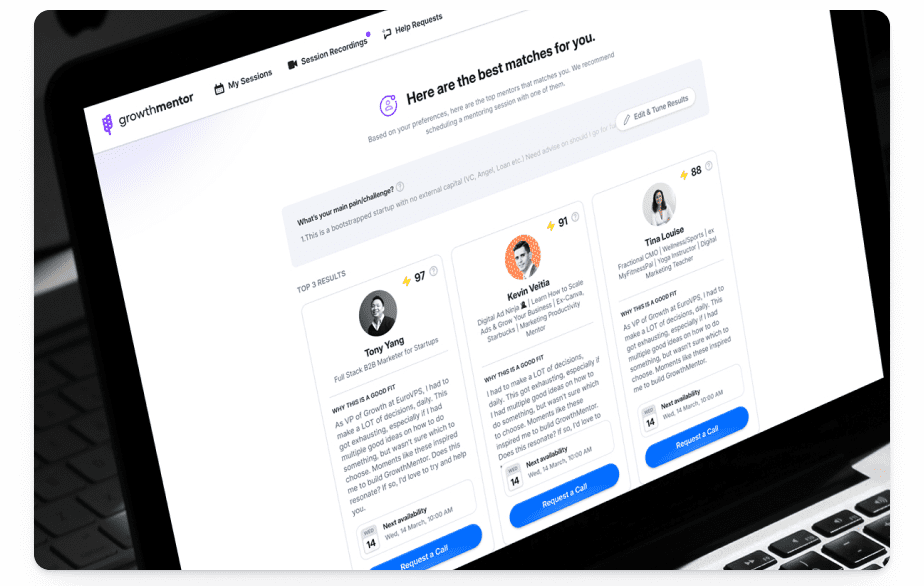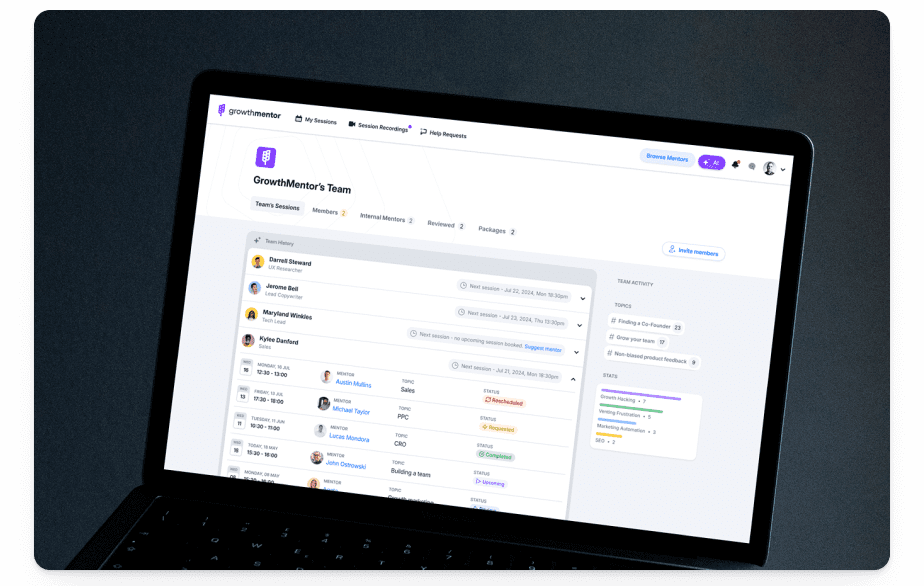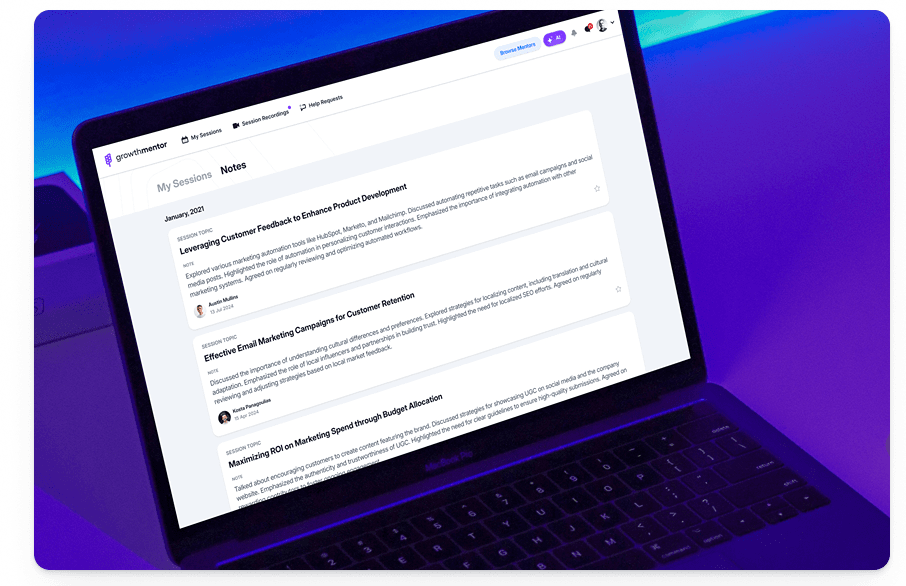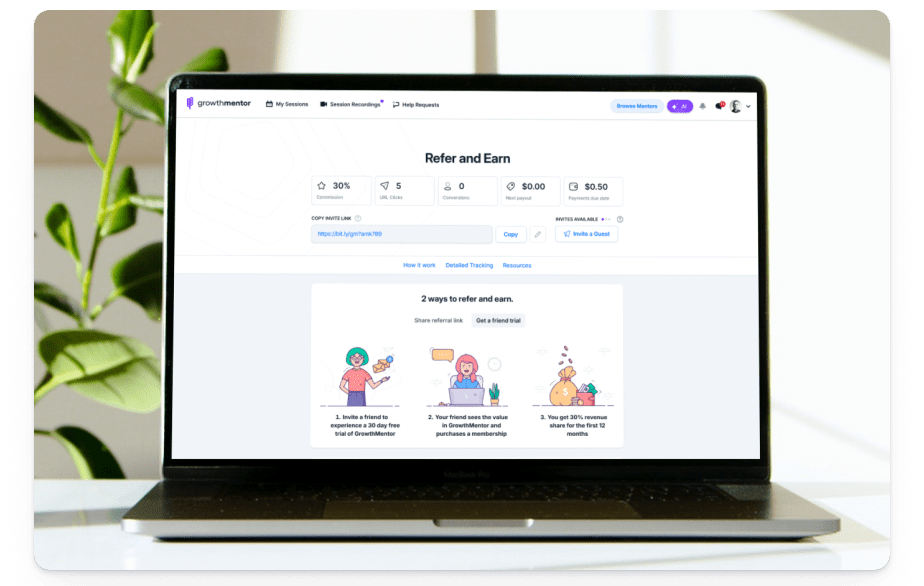“It’s insane how I’m able to hop on Zoom calls with hundreds of experts that work at some seriously impressive companies!”


Find mentors with user research experience
Connect with the right people and get unstuck
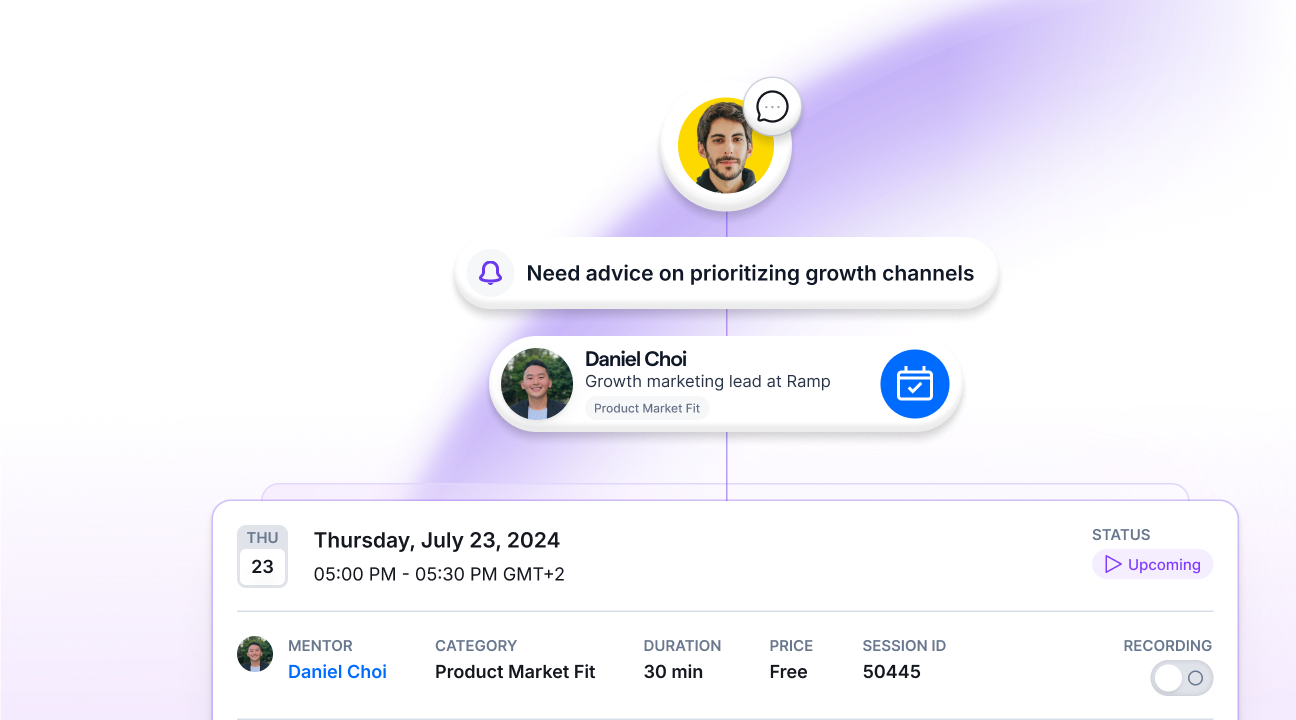

Find your mentor
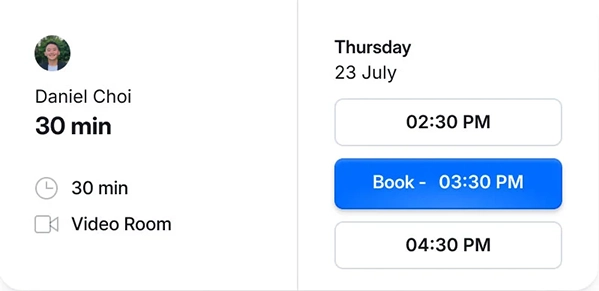
Book a Call
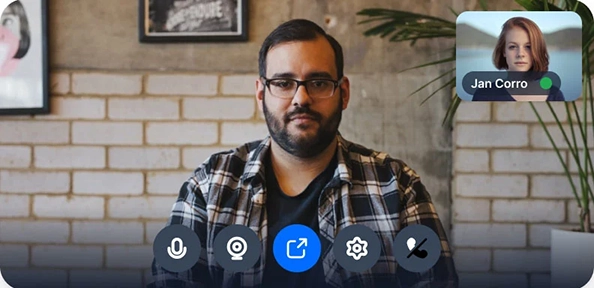
Get unstuck
User research mentors at your fingertips
What would you like to get better at today?
Just a few of the topics being discussed over casual conversations on GrowthMentor
Book Zoom calls with vetted user research mentors and receive personalized advice that's relevant to your situation.
Who are our target users?
What problems are users facing?
How do users currently solve their problems?
Which features do users value most?
When do users use similar products?
Why do users prefer competitor products?
How can we engage with our users?
Where do users search for solutions?
Should we use surveys or interviews?
What are the key user pain points?
How do users interact with our product?
What motivates users to choose us?
How do we identify early adopters?
What are users' primary goals?
All your questions about mentorship, answered
Why should I talk to a user research mentor?
Of all the strategies for creating a product, user research is one of the few that can ensure it meets actual user needs without unnecessary features.
But conducting effective user research takes a lot of skill, smart methodologies, and learning from each iteration while you’re figuring things out.
Because while user research is insightful, it’s also complex. Recruitment challenges and biased data are common, making it more important than ever to have practical, actionable advice.
Plus, the sheer number of research methods can be overwhelming for a new product manager.
Yes, there are plenty of DIY guides and case studies out there. But theory and practice are two very different beasts.
Wouldn’t you rather have confidence in every insight you gather?
You can. Just talk to a user research mentor.
What can a user research mentor do for me?
Most user research mentors have conducted and overseen multiple research projects from start to finish. Some have been successfully applying user research since their early days in the field.
These mentors bring the real-world experience you need to navigate the challenges of understanding and designing for your users.
With a mentor’s advice, the path to a user-centered product becomes clearer. You’ll learn how to recruit participants, design effective studies, and analyze data for actionable insights. They’ll help you avoid common biases, identify true user needs, and develop a research plan that aligns with your goals.
For more experienced researchers, a user research mentor can dive into advanced techniques like triangulating data, conducting longitudinal studies, and leveraging mixed methods. They can even share examples from their own projects so you can learn firsthand.
So you can achieve greater success with less trial and error, regardless of where you are on your research journey.
Should I talk to a user research mentor now?
Whether you’re just starting to conduct user research or already deep in the process, you should talk to a user research mentor.
If you haven’t started yet, a mentor can guide you through the early stages. They’ll help you craft a solid research plan, figure out the best methods for gathering data, and provide tips on synthesizing insights without overwhelming yourself.
They can also advise you on when and how to iterate on your findings and how to build a user-centered design process.
If you’re already conducting user research, a mentor can help you when:
- You’re struggling to recruit the right participants
- You’re facing challenges with interpreting complex data
- You’ve hit a plateau and need new techniques for deeper insights
- You need creative solutions for presenting findings to stakeholders
- You’re considering new research methods and want to ensure they align with your overall product strategy
Even for seasoned researchers, a mentor’s insights can accelerate your progress and help you reach new heights.
Why should I trust GrowthMentor’s mentors?
Excellent question. After all, the “mentorship” world is full of high-priced consultants, armchair analysts who have never done the work themselves, and outright snake-oil salesmen looking to make a quick buck.
But, there are plenty of experts out there who want to share their experience and knowledge. At GrowthMentor, we’re lucky to have 700+ of those experts.
The secret comes from our vetting process. We not only double-vet all of our mentors so only the top 3% makes it through our process, we also look at their soft skills. Because no one wants a mentor who’s a snob or a jerk.
On top of it, 85% of our mentors don’t charge an extra fee. Why?
The short answer: Because they want to help people.
The long answer is because…
- They enjoy sharing their knowledge
- They learn from their mentees
- They want to be a “force for good” in the business world
- They want to pay it forward
But don’t just trust our word on it. Hear from the mentors themselves.
Join the most uplifting community on the internet
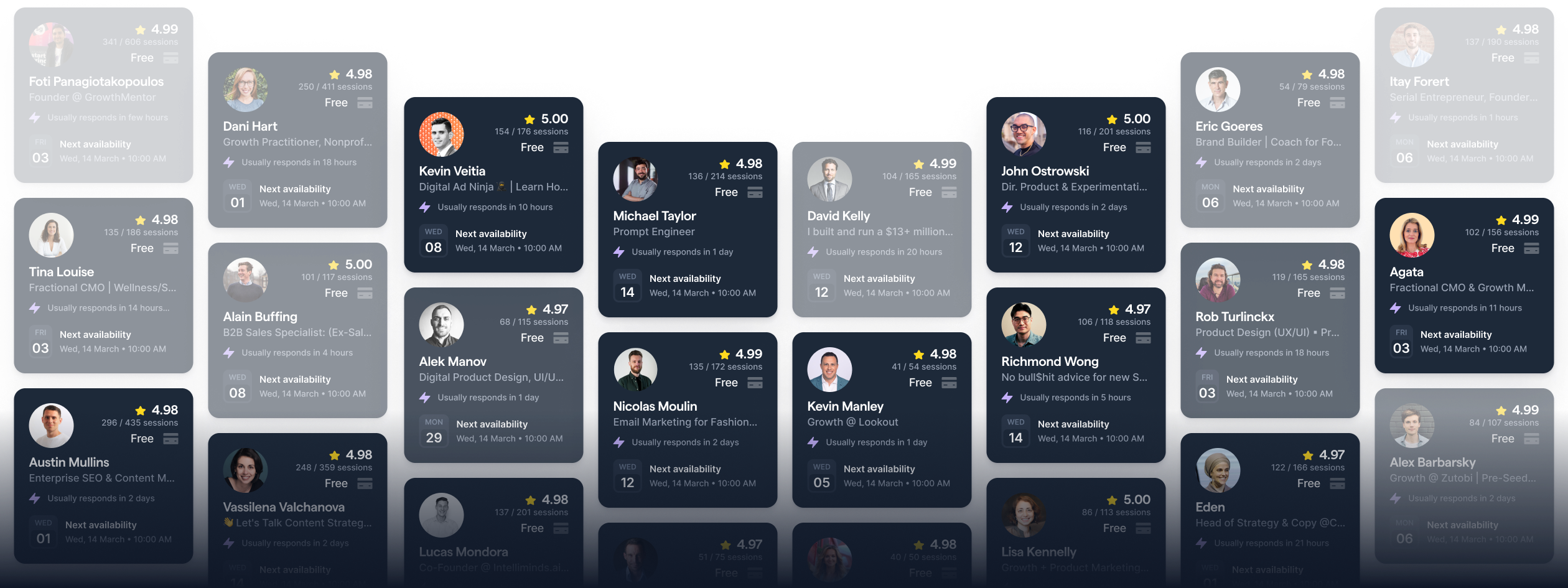
Frequently asked questions
Our mentors are the top 3% of their field. Every mentor goes through a strict double-vetting process to ensure they’re the best of the best.
But, when vetting, we also look at an applicant’s soft skills:
- Does this person have the patience to hop on a call with a total newbie?
- Can they hang with someone who is even more advanced than themselves in a certain area?
We’re looking for humility, kindness, and warmth.
These traits are what set Growth Mentors apart from other “gurus”.
They want to share their knowledge and help.
The short answer? Because they want to help people.
The long answer? Because…
- They enjoy sharing their knowledge
- They learn from their mentees
- They want to be a “force for good” in the business world
- They want to pay it forward
Yep. Purchase a pro plan and you get unlimited calls every month.
GrowthMentor is the only startup mentorship platform in the world where a single flat-rate subscription gets you unlimited access to hundreds of world-class mentors.
No exorbitant per-session fees, – think Netflix, but for 1:1 calls with startup mentors.
Two words: active learning. When your team goes to AI with their problems, they’re often consuming the information, but not applying it.
By talking things through with a mentor, your team members will sharpen their understanding of their challenges and find routes to put the advice into action faster than they could with an AI solution.
Yes. If it’s not for you, simply cancel your membership within 14 days and contact support for a full refund.
Note that refunds are not possible if you’ve breached our terms of service.
